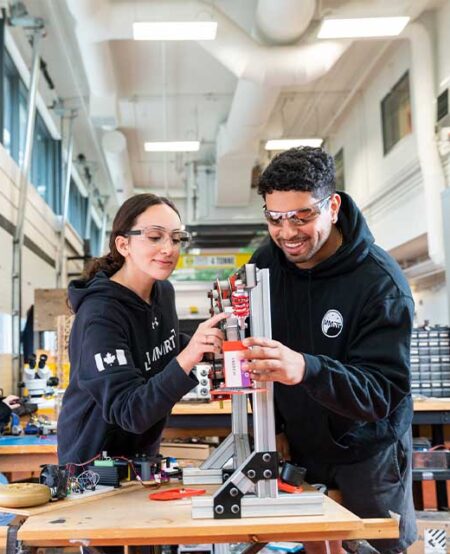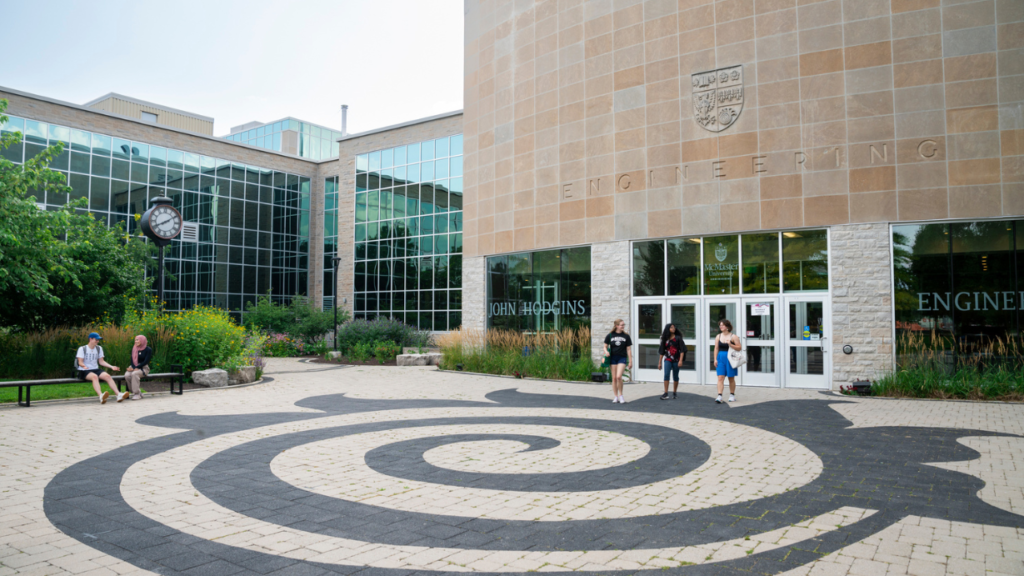- Length
- 4 years
- Degree
- Bachelor of Engineering (Co-op Available)
- Program
- Engineering
- Options
Program highlights
Computer Engineering is the field that studies the science and technology of design, implementation and validation of both hardware and software components of computing systems. It encompasses computer hardware, programming, electronics, digital communications, multimedia, signal processing, robotics and other related technologies.
Computer Engineering combines the best of both worlds: design of hardware (Electronic Engineering) and software (Computer Science) components.
I buy into the idea of experiential learning and applying what I’ve learnt in class to highly advanced and hands-on teams such as the McMaster Engineering EcoCAR 3 team.
Admission requirements


Careersand research
Since you specialized in two fields you will have tremendous freedom in choosing types of project you want to work on and/or your career. As an example you may choose to work on the development of the medical devices such as medical robots. Or you may choose to design and implement control algorithms that control water level in water dams. Another option is to work for a power utility company and design code that controls substations in a power utility grid. You may also work with automotive designers to design Microsystems that control fuel ignition in hybrid vehicles. The opportunities are unlimited!
Career paths
- Digital Electronics
- Software
- Web applications
- Computer security
- Machine learning
- Robotics
- Digital Communications
- Medical devices
- Consumer electronics
- Automotive industries
Research areas
- Fault-tolerant computing
- Digital system testing
- Computer-aided design
- Parallel processing
- Video signal processing architectures
- Neural computing
- Computer security
- Multimedia systems
- Embedded computational systems
- Biological computing
Need moreinformation?
How to apply
Understand every step, from applying, to accepting your offer and joining us on campus!
Department of Electrical and Computer Engineering
We’re electrifying the world of engineering.


